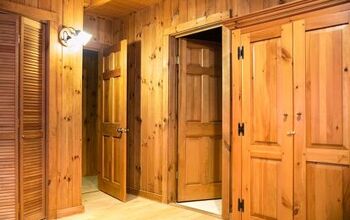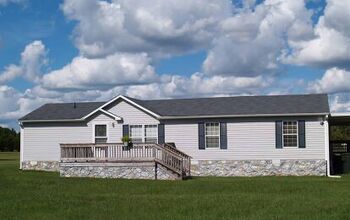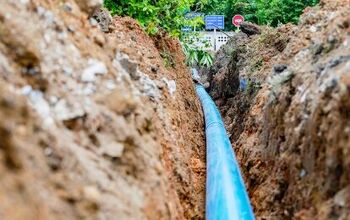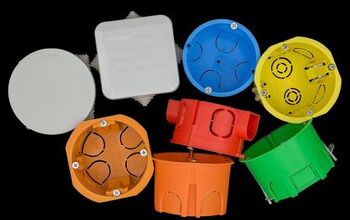How Tall Should a Fence Be? (Privacy, Front & Backyard Fences)

If you’ve got a noisy neighbor, you already know that a 6-foot privacy fence isn’t enough. The solution? An 8-foot privacy fence. But maybe the reason you’re wondering about your fence’s height is not for privacy. Perhaps you’re just looking to stay on the right side of the law, or it’s possible you have a dog or other animals in your backyard.
So you wonder… just how tall should my fence be? And, how high can I really go without getting in trouble with the town?
While there’s no set residential fence height, most cities limit fences to six feet in height. For front yards, the limit is usually 4 feet, and 6 feet for backyards. To build a fence over 6 feet, a permit or variance is required. The ideal height for a privacy fence is 8 feet to fully block out your neighbor’s view. Actual fence height requirements vary by municipality.
Additionally, when installing a fence, the homeowner should make sure it is done safely and does not impose on the adjoining property (such as your neighbor’s house). Additionally, it is important your fence is not too tall, so it doesn’t block the view of vehicle traffic at the intersection.
But before we get ahead of ourselves… let’s take a look at what our purpose is for installing a fence and what our actual limits are.
Common Fence Heights
A fence in your front yard is limited to 3 feet. Whether you live in Houston or Los Angeles, this is true in many cities across the US. Backyard fences have a limit of 6 feet, while pool fences are limited to 4 feet.
Finally, a deer fence is limited to 8 feet. For goats, it is recommended to install a 4 to 5-foot fence. That is, of course, if you have goats in your backyard.
If you have horses, your fence should be 45-60 inches above the ground. But instead of assuming you have several acres for horses, (wouldn’t that be nice?) let’s get back to regular residential home requirements.
Do I Need a Permit to Install A Fence?
In most cases, permits are not required to install or repair a fence. However, a permit may be required for fences higher than six (6) feet. In some municipalities, if you want to build a fence taller than six feet, you’ll not only have to get a permit but also apply for a variance.
A variance is required when a homeowner is looking to change the planned use of their property, which deviates from local zoning laws designed to protect nearby property values.
If granted, you’ll be able to waive some aspects of the zoning laws and regulations for your fence. Finally, the installation of the fence can be completed by a contractor or the homeowner, as there’s no rule on who installs it. The only factor that matters is that it is up to code.
Front & Backyard Fence Height Limits (by State)
| State | Front Yard Fence Height Limit | Back Yard Fence Height Limit |
| California | 6 feet (2 additional feet for barbed wire) | 6 feet |
| Connecticut | 6-6½ ft | 6 feet |
| Florida | 4 feet | 6 feet |
| Georgia | 4 feet | 6 feet |
| New Jersey | 4 feet | 6 feet |
| New York | 4 feet | 10 feet |
| Pennsylvania | 4-6 feet | 6 feet |
| Texas | 4 feet | 8 feet |
* keep in mind that these are just general rules for most cities in each state. Actual fence height requirements vary by each muncipality. For example, in Bristol, CT, the front yard height limit is 6 foot and 6 inches, whereas other areas in CT only allow a 6-foot fence.
How Tall Can a Privacy Fence Be?
If you want to install a privacy fence and block out your neighbor’s view, you can go as high as between 6 and 8 feet tall. We recommend building an 8-foot fence because sometimes a 6-foot fence won’t be enough to block out the view.
However, one thing that may stand in your way is municipal regulations. For example, some cities will require you to get engineer-stamped drawings. Typically, those drawings will include what material needs to be used and how the fence needs to be installed.
In some cases, your city will require a more rigorous inspection process. Your contractor may have to make multiple visits, which will increase the time and cost to build the fence.
But, keep in mind that some municipalities will not allow you to build 8-foot fences at all. For example, in my local town of Paramus, New Jersey, in the rear yard and along the side yard lines a fence can only be as high as 6 ft. 6 inches in height.
How Tall Can a Front Yard Fence Be?
A front yard fence is usually limited to 4 feet or 48 inches. In some towns, the fence cannot be less than 50% open, like in the case of picket fences and post or rail fences. Also, some towns do not allow the installation of chain link fences for the front yard.
Why can’t you have a fence over a certain height in your front yard or garden? Simple. Other neighbors can complain you are blocking the view of their home.
Or, your yard could be so tall that someone making a turn on the side street next to your home cannot see oncoming traffic. That’s a potential accident waiting to happen. All of this and more points are discussed in the next video:
The general idea is that a front yard fence should be shorter than a backyard fence. But, although you may think so, the reason is not related to the aesthetic of your neighborhood.
What If I Have Trees Next to My Fence?
Trees are allowed to be slowly taller than fences. But generally, your trees will be held to approximately the same standards as your actual fence. If your trees impact your neighbor’s enjoyment of his property, he can complain and cause you to trim or remove them altogether.
On the flip side, if your trees don’t obscure traffic and your neighbor doesn’t complain, you may be allowed to keep them. But, if an inspector from your town passes by, it’s possible you could be fined. There’s no loophole in the law here, and you’ll likely have to trim your trees or bushes.
How Tall Can a Garden Fence Be?
A shorter fence of 3-4 feet is ideal to fence in a garden. With that short of a fence, your beautiful garden can still be viewed by people who pass by. Usually, you should go with a vinyl picket fence or an aluminum fence for your garden. To avoid animals from attacking your garden, choose solid vinyl or a wooden fence instead.
For best looks, go with a bamboo fence. It’ll act as an extension of your garden and give it that organic look.
How Tall Can a Neighbor’s Fence Be?
The same rules apply here. The legal height for fences between a neighbor’s home and yours is four feet for the front yard and six feet for the backyard. The maximum is definitely 6 feet all around, meaning, there’s no area of the neighbor’s house that can be taller than that.
Of course, if your neighbor applies for a permit or variance and gets approved, he or she may be able to build a taller fence. But, can my fence be taller than my neighbor’s? Sure, if it adheres to the height requirement in your town. If your neighbor has a 4 foot fence and the maximum allowable height is 6 feet, you can have a 6-foot fence.
How Tall Can a Vinyl Fence Be?
Vinyl privacy fences are heavy-duty fences and are available in 3 foot, 4 foot, 5 foot, 6 foot, 7 foot, 8 foot, 9′ tall, 10′ tall, and 12 foot tall. There are also 16-foot tall privacy fences, but such tall fences are normally only installed in recreational places like public parks. It is very rare that you’ll be able to install such a tall fence around your home.
How Tall Can a Chain Link Fence Be?
There are various heights for chain link fences. The most common ones are 36, 42, 48, 60 and 72 inches. However, check your local zoning laws to make sure you can install a fence above 6-foot. Chain link fences are wise investments and can be used to keep your pets in. But, if you live near a school, you may want to get a wooden fence.
While chain link fences are good for dogs and other pets, laws in certain states like in Massachusetts state that you can be responsible for any injury caused to children by your pet, while walking back home from school. A wooden fence will block your dog’s ability to see children crossing, or the children noticing the pet and getting close.
How Tall Should a Fence Be For Dogs?
For large dogs, install a 6-foot tall fence, especially if your dog is known to jump often. For small dogs, a 3.5 ft to 4-foot fence will be more than enough. The rule of thumb is that your fence should be three times the height of your dog at the shoulder.
For Chihuahuas and Pugs, a 3-foot fence is ideal. For Beagles, a 4-foot fence. For Border Collies, Labs, and German Shepherds, get a 6-foot fence. For Saint Bernards or Great Danes, we recommend a fence of 8 feet.
How Tall Should a Fence Be For Chickens?
Fences should be 6 foot tall to keep chickens in and to keep other animals from getting to them. Fences also must be buried into the ground at least 6 inches to stop chickens from escaping underneath. Choose a heavy-duty fence like a chain-link fence with smaller holes.
So, What Fence Height Is The Most Ideal?
While it depends on your intended use, we learned that for residential purposes, a 6-foot fence is the most common. In some states, you may be able to get away with an 8-foot fence (or even higher).
In areas like New York City, the maximum allowable fence height is just 4 feet (in lower-density areas). We did learn that if your fence was constructed before a certain year, the height requirement is a bit higher.
Based on our research, we also found that as long as you make what’s called substantial performance or good faith to meet the requirement, you may not have to meet the exact requirements. As long as the fence you build is mostly compliant with local laws, you can argue your case, even if it’s not the correct height.
To figure out what you can get away with, head over to your municipality’s website and look for the fence regulations. Alternatively, you can do a Google search with your city’s name and “fence requirements” and you’ll likely find the ecode360.com database.

We are a team of passionate homeowners, home improvement pros, and DIY enthusiasts who enjoy sharing home improvement, housekeeping, decorating, and more with other homeowners! Whether you're looking for a step-by-step guide on fixing an appliance or the cost of installing a fence, we've here to help.
More by Upgraded Home Team



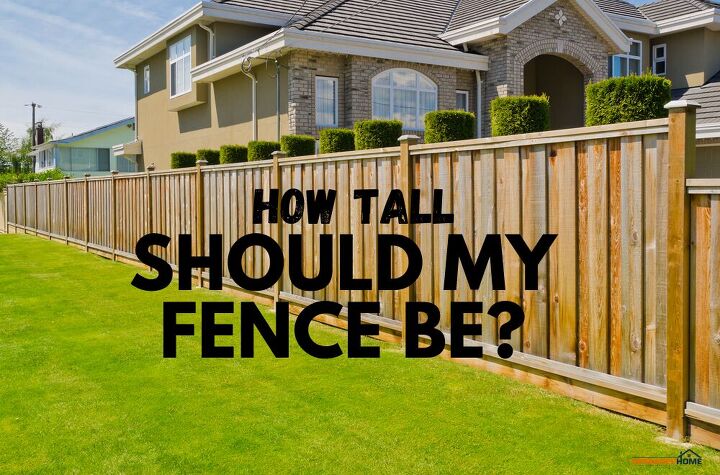







![10 Best Zero Turn Mowers – [2022 Reviews & Ultimate Buyer's Guide]](https://cdn-fastly.upgradedhome.com/media/2023/07/31/9070522/10-best-zero-turn-mowers-2022-reviews-ultimate-buyer-s-guide.jpg?size=350x220)
